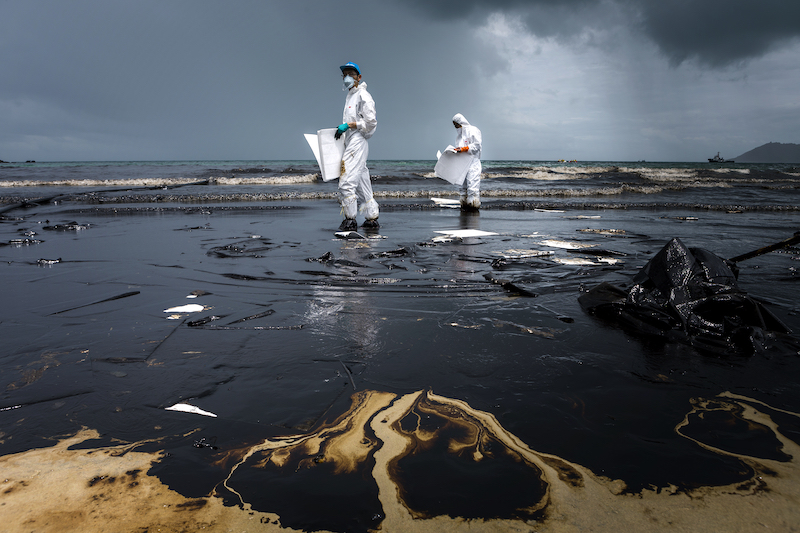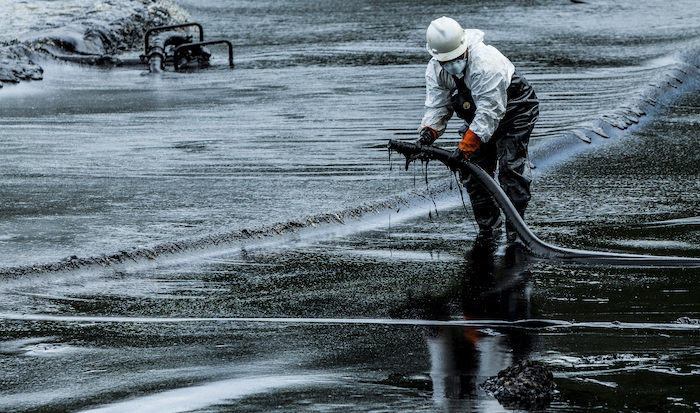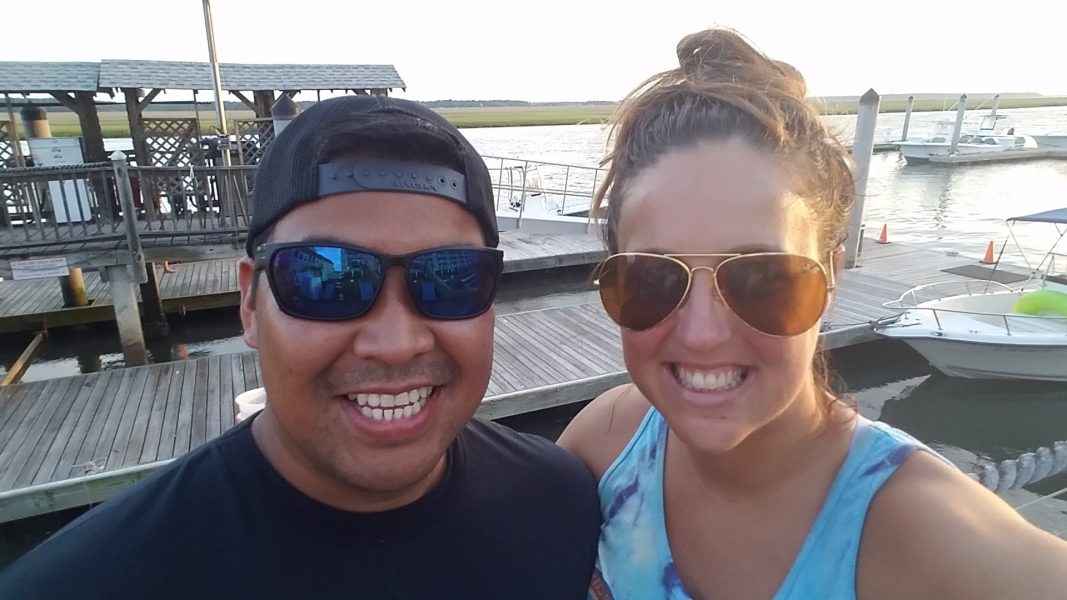
Why I Fight Oil Drilling
By Meghan Dailey, Not The Answer Coordinator, Charleston Surfrider

The Trump Administration has been pushing to expand offshore drilling around the United States waterways. This process begins with seismic surveys to determine where the potential oil pockets are located. Once oil pockets are identified, oil rigs are set up to begin extracting oil. I joined the Surfrider Foundation to support efforts to educate the public and protect our coasts from threats such as offshore drilling. I wanted to begin with sharing a few of my past experiences around oil spills and the oil industry.
On April 20, 2010, BP’s Deepwater Horizon oil rig exploded leaking over 200 million gallons of crude oil into the Gulf of Mexico for 84 days. This was the largest oil spill in United States history. I had just started graduate school at Ole Miss and my grant allowed me to perform quantitative research related to exposure to oil-associated polycyclic aromatic hydrocarbons in the water and sediment could severely impact the aquatic organisms inhabiting the Gulf of Mexico. While my thesis ultimately did not place blame directly on the shoulders of anyone or any entity in particular, I was able to formulate my personal stance on offshore drilling, which I vehemently oppose.

My graduate research experience led me to a job specializing in oil remediation and exploration projects for a consulting firm in Texas. There I learned a lot about the demographics of employees of the oil industry; most surprisingly was a vast majority were not locals and thusly did not contribute to the local economy. Instead, a lot of the aforementioned employees would commute between 6 and 12 hours. With the collapse of the oil economy in 2014, gas prices dropped significantly (below $2.00 a gallon), and the commuting employees were laid off. The results were broken economic promises to a local economy as well as the destruction of a previously gorgeous gulf shoreline laid barren as a result of uncontrollable algal blooms and poor water quality directly correlated to the development of offshore drilling rig.
The biggest scare in my mind to offshore drilling in the Atlantic is the high frequency of hurricanes. There were a total of 17 hurricanes in 2017 and 15 so far in 2018. Hurricane Katrina destroyed over 100 oil rig platforms in 2005 which caused 8 million gallons of oil to spill into the Gulf of Mexico. Just one year prior, Hurricane Ivan destroyed oil platforms, that continue to leak 300 to 700 barrels of oil a day. That leak has been leaking up to 29,400 gallons of oil a day for 14 years! That is a lot of milk jugs!
Oil spills have long term effects on the environment and the economy. Environmental effects could be tarballs washing up on the beach, dolphin populations decreasing, wetlands disappearing, bioaccumulation of oil constituents in local fish leading to human consumption. Economical effects could be a loss of harvest of fish, shrimp, oysters, jobs, and tourism. With the people in Alaska still trying to recover their fishing, recreational, and tourism industries post the Exxon Valdez spill of 1989, it is difficult for me to believe that any benefits to off-shore drilling outweigh the costs.
If you would like to take an easy step to fight offshore oil drilling alongside me, please message your federal representatives here.

